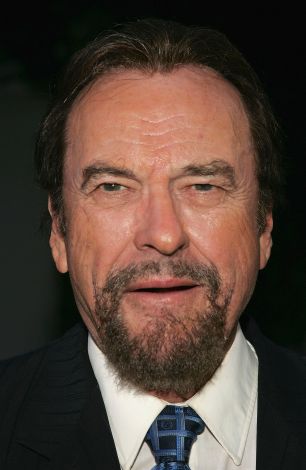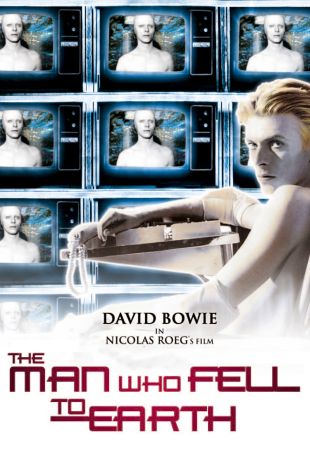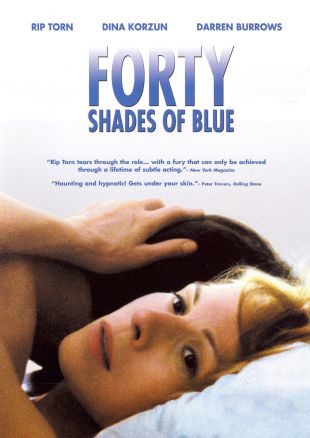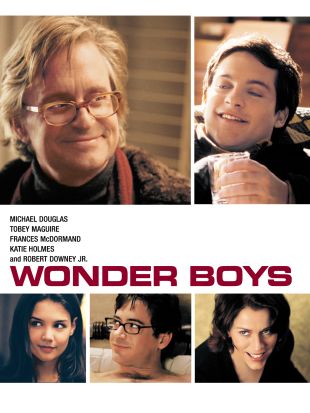Rip Torn may qualify as a "character actor" in the broadest sense of the term -- he typically fleshes out variations on the same role again and again, typecast as genially earthy, volatile, and loudmouthed good old boys. But, love him or hate him, Torn's roles over the course of more than half a century are distinct and pronounced enough to have elevated him above many of his contemporaries, into a veritable staple of American cinematic pop culture.
Born Elmore Rual Torn, Jr. in Temple, TX, on February 6, 1931, and nicknamed "Rip" by his father, Torn attended Texas A&M as an undergraduate and studied animal husbandry. He intended to establish himself as a rancher after graduation, but first opted to pursue an acting career as a means to buy a ranch, mistakenly believing that he would hit Hollywood and achieve instant stardom. Instead, Torn scrounged around Los Angeles for several years as a dishwasher and short-order cook, but continued to pursue acting in his off time. Torn's persistence paid off, and he eventually landed several bit parts in movies and television series. He moved to Manhattan in the late '50s, where he formally studied acting under Lee Strasberg and danced under the aegis of Martha Graham; a wealth of movie roles followed over the next several decades, beginning with that of Brick in Actors Studio associate Elia Kazan's controversial classic Baby Doll (1956, with a script by Tennessee Williams) and, a few years later, the role of Finley in another Williams drama, the Richard Brooks-directed Sweet Bird of Youth (for which Torn received a great deal of notoriety). Additional supporting roles throughout the late '60s and early '70s included Slade in Norman Jewison's The Cincinnati Kid (1965), I.H. Chanticleer in Francis Ford Coppola's You're a Big Boy Now (1966), and Sgt. Honeywell in Cornel Wilde's Beach Red (1967).
In the late '60s, two key (albeit temporary) shifts occurred in Torn's career. First, he went counterculture (and arthouse) with an unofficial trilogy of experimental roles. In the most pronounced -- Joe Glazer in Milton Moses Ginsberg's Coming Apart (1969, opposite Andy Warhol regular Sally Kirkland) -- Torn plays a nutty psychiatrist who specializes in female neuroses and decides to film all of his sessions, then his own mental breakdown. (Ginsberg films all of the action as reflected in a mirror.) The X-rated picture -- which features graphic sequences of Kirkland performing fellatio on Torn -- was (and is still) widely derided as spectacularly bad. Variety hit the proverbial nail on the head in 1969 when it concluded, "The problem with Coming Apart is that while it suggests some interesting ideas, it can't deliver any of them in cogent form....The results are not satisfactory." Neither are the second or third installments in Torn's "experimental" phase: roles in the first and third features directed by literary giant Norman Mailer, Beyond the Law (1967) and Maidstone (1970). Of Law -- an improvisational, comic piece set in a precinct house (with Torn as a character called Popcorn), The Motion Picture Guide sneered, "Barney Miller may have been inspired by this movie," and Roger Ebert declared it unintentionally funny, but those were the kindest reactions. Maidstone -- a fragmented, barely coherent drama -- stars only Mailer, as a politician-cum-film director, and Torn. This partially improvised picture became notorious for an on-camera sequence in which Torn (playing Mailer's half-brother) attacks Mailer with a hammer (allegedly for real), sans forewarning, bloodying up the author's face while the actress playing his wife screams in the background. Some wrote the scene off as a fake, but many others dissented. Variety observed in 1970: "[Torn] states he had to do it to make his character real and for the film. But he claims he pulled the hammer and had never drawn blood before while acting. The Mailer character is furious and vindictive. Mailer would not disclose whether it was real or not, but it did look ferociously authentic...."
The second "shift" of Torn's career in the early '70s yielded infinitely greater success: a pair of rare leads in A-list features. He played Henry Miller opposite Ellen Burstyn in Joe Strick's marvelous, picaresque adaptation of that author's novel, Tropic of Cancer, and the abusive, booze and pill-addled country singer Maury Dann in Daryl Duke's harrowing drama Payday (1973). The pictures opened to generally spectacular reviews and raves over Torn's portrayals; Variety, for one, termed his performance in the Duke picture "excellent."
While these lead roles showcased limitless dramatic ability, they unfortunately marked exceptions to the rule, and for the remainder of the '70s, '80s, and '90s, Torn contented himself with an endless (albeit impressive) array of colorful supporting turns -- dozens of them. High points include Nathan Bryce in The Man Who Fell to Earth (1976); Dr. George in Coma (1978); the boozing, hell-raising, and philandering Senator Kittner in Jerry Schatzberg's The Seduction of Joe Tynan (1979); longhaired record producer Walter Fox in Paul Simon's One Trick Pony (1980); the pirate-like Scully in Carl Reiner's Summer Rental (1985); Buford Pope in Robert Benton's sex farce Nadine (1987); the none-too-gifted afterlife attorney Bob Diamond in Albert Brooks' fantasy Defending Your Life (1991); Zed in Men in Black (1997); acid-mouthed coach Patches O'Houlihan in the Ben Stiller comedy Dodgeball: A True Underdog Story (2004); and King Louis XV in Sofia Coppola's much-ballyhooed tertiary directorial outing, Marie Antoinette (2006). His low point undoubtedly arrived in 2001, when he played Tom Green's father, Jim Brody, in the controversial comedian's yuck-fest Freddy Got Fingered (2001). (A very low point; the film's comic highlight has Torn being showered with fake elephant ejaculate.)
In addition to his film work, Torn made a series of critically acclaimed contributions to the small screen throughout the '80s and '90s, most vividly as Artie on HBO's Larry Sanders Show, for which he gleaned two Cable Ace awards, three Emmy nominations, and an Emmy for Best Supporting Actor in a Comedy Series. Torn did direct one feature, the 1988 Whoopi Goldberg vehicle The Telephone, which opened and immediately closed to devastating critical reviews and dismal box office.
Torn was married to actress Ann Wedgeworth from 1956 until their divorce in 1961 and Geraldine Page from 1961 until her death in 1987, and is currently married to actress Amy Wright. He is the cousin of actress Sissy Spacek.



